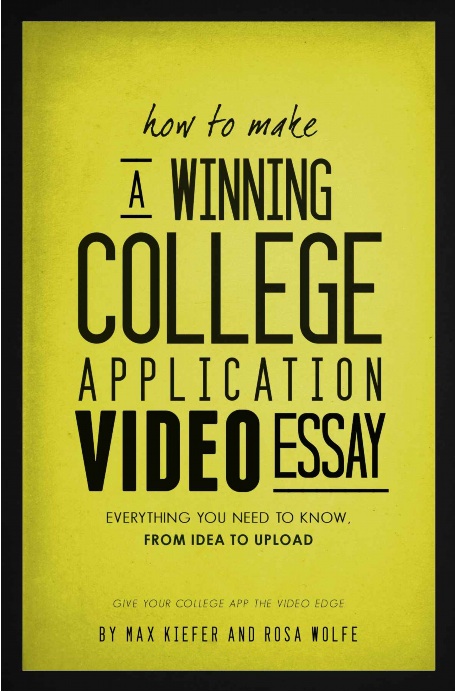
Today, I’m reviewing a book entitled “How to Make a Winning College Application Video Essay” by Max Kiefer and Rosa Wolfe. This book is written by parents for students: “We are a husband and wife writing and filmmaking team who have worked together so long that finishing each other’s written sentences is literally our stock in trade.”
In the beginning text in the book, they talk about the emergence of the video college application essay:
UTube officially arrived in 2009 when Tufts University invited applicants to submit an optional one-minute video. Tufts’ director of admissions, Lee Coffin, made this decision after being so impressed with a student video he famously remarked, “I thought, ‘If this kid applied to Tufts, I’d admit him in a minute, without anything else.’ ” With or without Tuft’s paradigm-changing decision, in the Internet age the college admissions video was inevitable. For a generation that has grown up swimming in social media, for whom images are a critical adjunct to communication, it’s hard to imagine that videos would not eventually become an element in the college sweepstakes. George Mason University, William and Mary, and St. Mary’s College have also begun inviting video submissions. More schools will surely follow. In any case, providing the colleges to which you apply with a DVD or a link to a short video essay won’t hurt. You don’t need to ask permission. If a college doesn’t want to look at your video, they simply won’t… but there’s every chance they will.
Continue reading How to Make a Winning College Application Video Essay →










